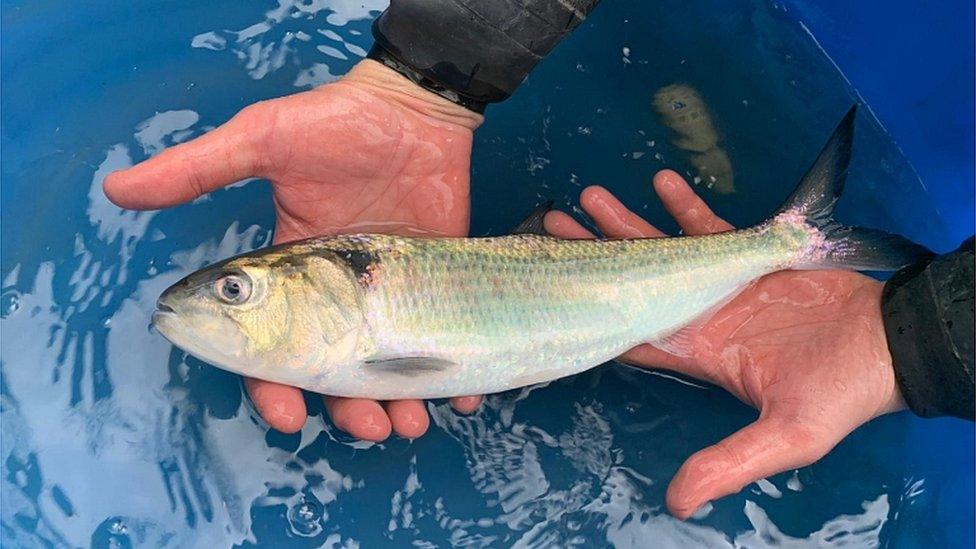Rare twaite shad at River Severn spawning ground after 180 years
- Published
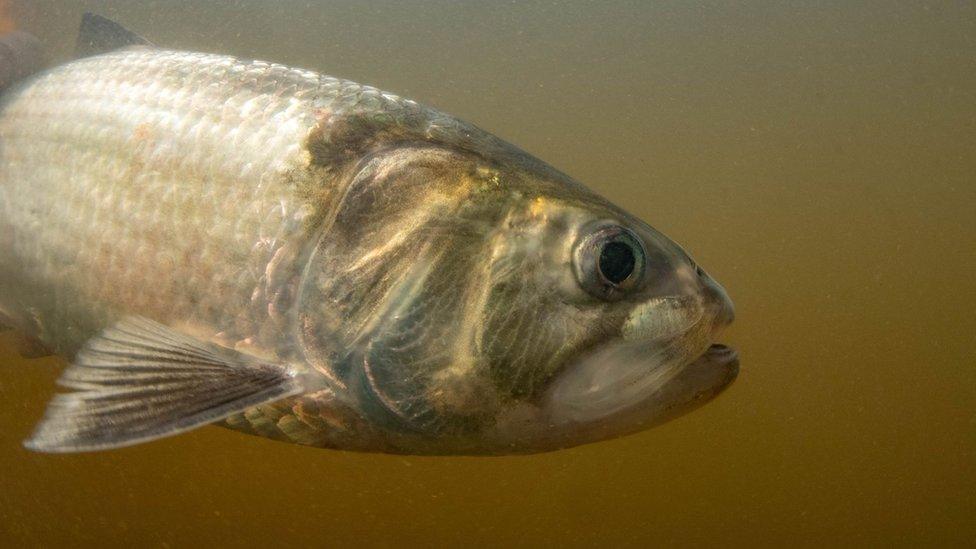
Twaite shad is a type of herring that migrates from the sea into freshwater to spawn each year
For the first time in 180 years an endangered and rare fish has reached an ancient spawning ground.
DNA tests from samples have shown that the twaite shad, a type of herring, is present in the River Severn.
The discovery was made by the Worcestershire project, Unlocking the Severn, that has enabled the fish to return.
Four fish passes have been created in the river to also provide safe passage for other migrating fish.
Charles Crundwell, from the Environment Agency, said it was "thrilling" to know the passages working.
"Shad are rediscovering key habitat lost to them for so long - 35 generations for these fish," he said.
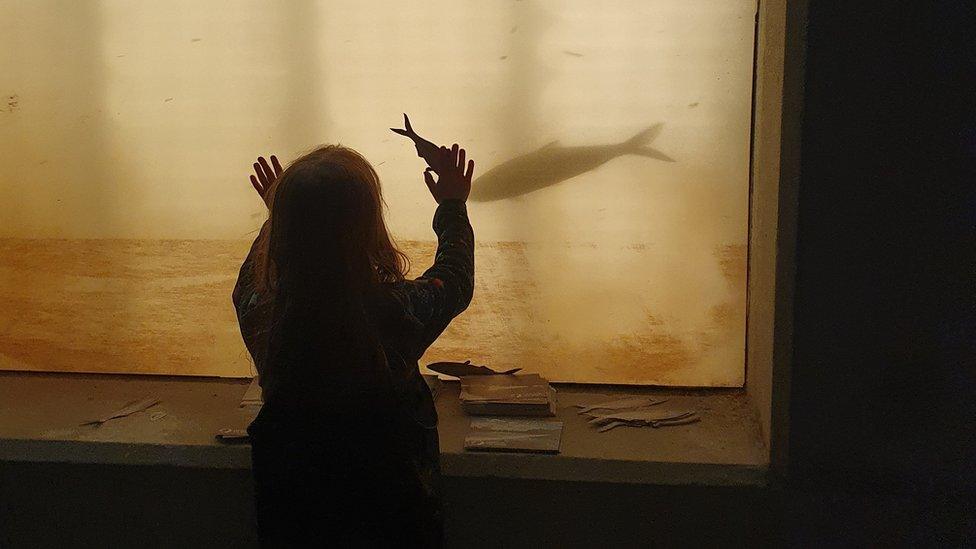
The viewing window at Diglis fish pass, Worcester has attracted many visitors
The fish were monitored using cameras filming through a unique underwater window, fish fitted with tiny tags, environmental DNA analysis of water samples, and volunteer citizen scientists taking water samples.

What is a twaite shad?
A type of herring fish that migrates from the sea into freshwater every year to spawn
Historic records show they once swam up the Severn in their hundreds of thousands on their annual migration each May
Their spawning grounds in the upper reaches of the river were cut off in the 1840s when large weirs were built
Source: Unlocking the Severn

Unlocking the Severn is run by the Canal and River Trust in partnership with Severn Rivers Trust, Environment Agency and Natural England.
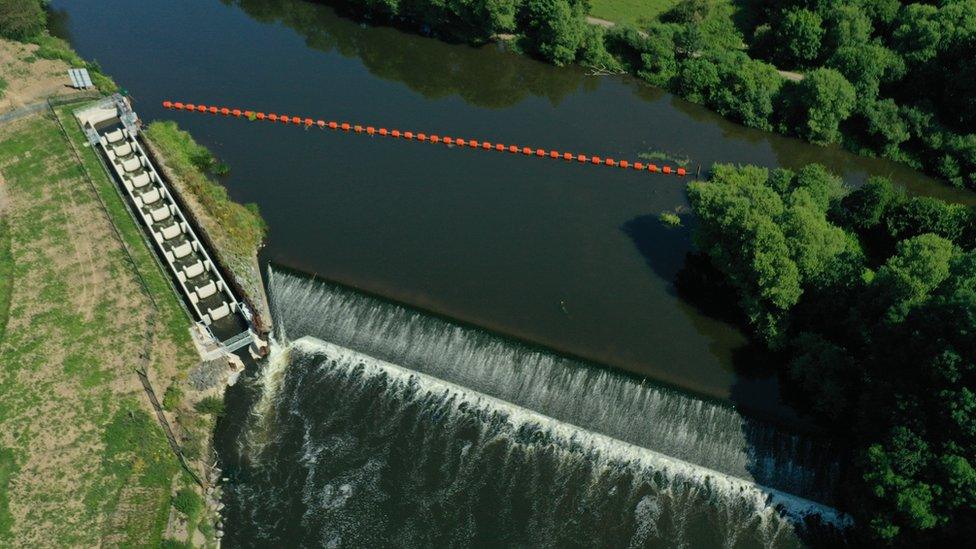
Lincomb Weir, Stourport-on-Severn is the fourth and final fish pass in the project
Lorna Pedersen, from the trust, said: "This year, from 100 tagged fish, shad were recorded travelling as far upstream as the final fish pass at Lincomb Weir, Stourport-on-Severn.
"This proved shad were making use of the first three fish passes - great news for their first migration through new habitat."
There are also fish passes at the Diglis Weir, Bevere Weir and Holt Weir all in Worcester.
A full report on the environmental DNA analysis of water samples is due to be published by Natural England later this year.

Follow BBC West Midlands on Facebook, external, Twitter, external and Instagram, external. Send your story ideas to: newsonline.westmidlands@bbc.co.uk, external
Related topics
- Published22 April 2022
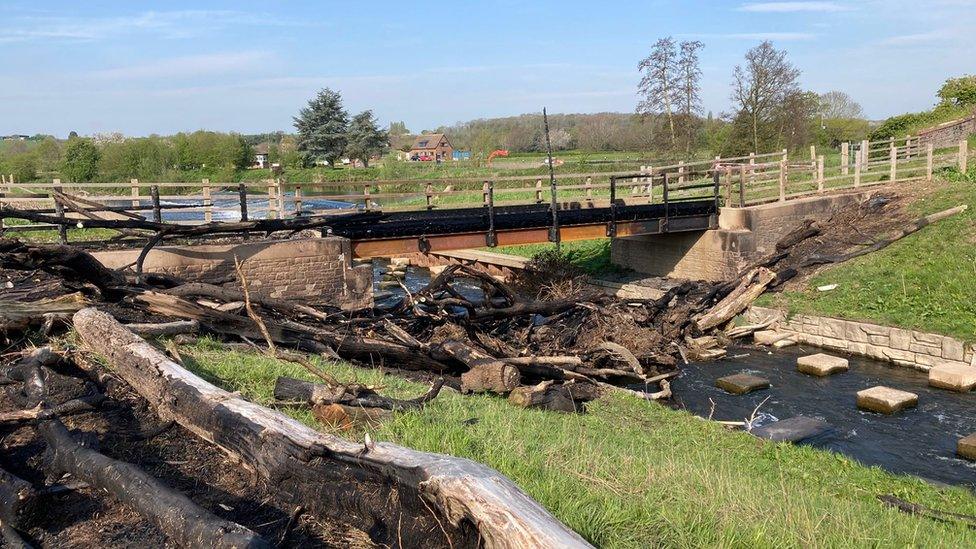
- Published7 May 2021
